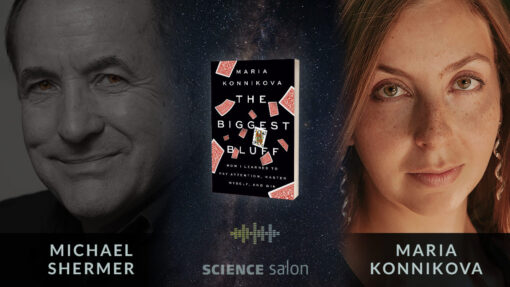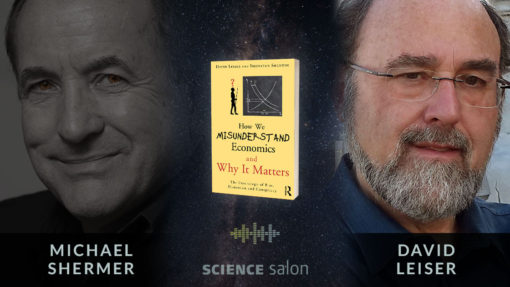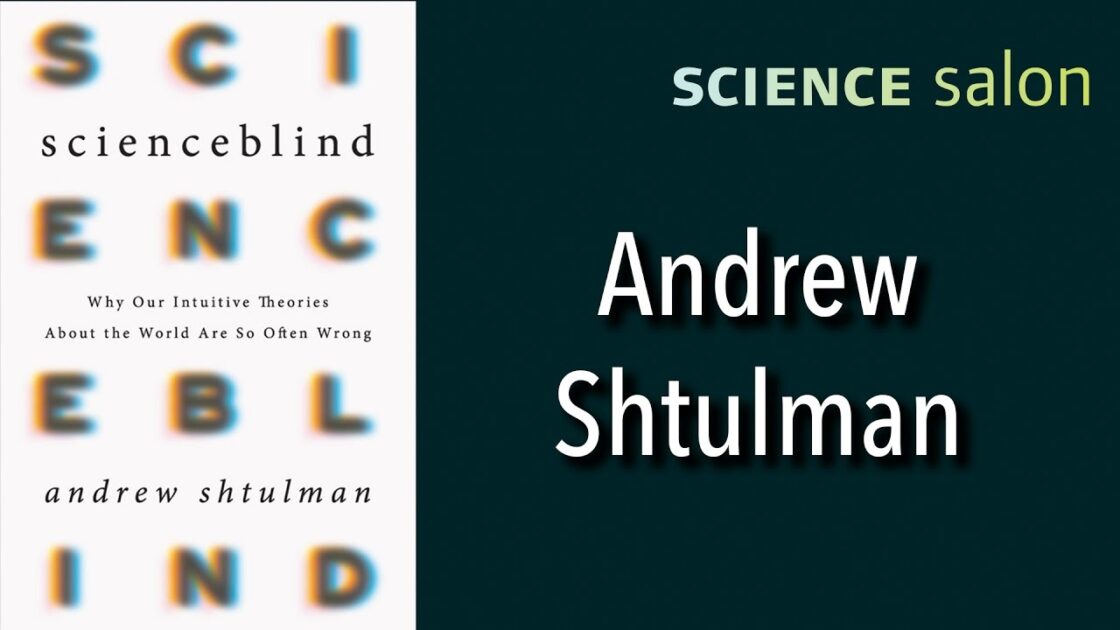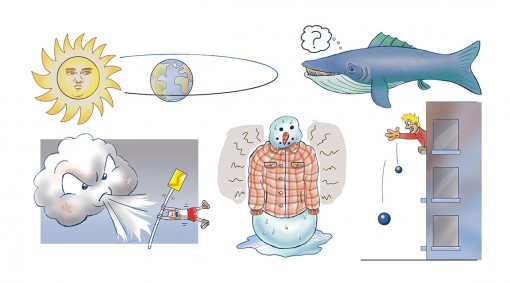intuition

In Science Salon # 121 Michael Shermer speaks with Harvard Psychologist and high-stakes poker player Maria Konnikova about her book The Biggest Bluff: How I Learned to Pay Attention, Master Myself, and Win — the ultimate master class in learning to distinguish between what can be controlled and what can’t.
In Science Salon # 121 Michael Shermer speaks with Harvard Psychologist and high-stakes poker player Maria Konnikova about her book The Biggest Bluff: How I Learned to Pay Attention, Master Myself, and Win — the ultimate master class in learning to distinguish between what can be controlled and what can’t.

In Science Salon # 94 Michael Shermer speaks with David Leiser about his new book: How We Misunderstand Economics and Why it Matters, diving into the mismatch between the complexities of economics and the constraints of human cognition that lie at the root of our misconceptions.
In Science Salon # 94 Michael Shermer speaks with David Leiser about his new book: How We Misunderstand Economics and Why it Matters, diving into the mismatch between the complexities of economics and the constraints of human cognition that lie at the root of our misconceptions.

Why do we catch colds? What causes seasons to change? And if you fire a bullet from a gun and drop one from your hand, which bullet hits the ground first? In a pinch why do we almost always get these questions wrong?
In his April 2017 ‘Skeptic’ column for Scientific American, Michael Shermer discusses the principle of proportionality: that we should prefer the more probable explanation over the less probable. Also in this week’s eSkeptic, MonsterTalk interviews folklorist and author Mark Norman to discuss legends of black hounds.
It was 20 years ago this week, March 20–26, 1997, that 39 members of the Heaven’s Gate cult “graduated” from this life to ascend to the UFO mothership that they believed would take them to an extraterrestrial paradise.
In this week’s eSkeptic, we announce three upcoming Science Salons with Dr. Carol Tavris, Dr. Andrew Shtulman, and Derren Brown; plus, Derek interview Bo Bennett on Skepticality about his latest book, Uncomfortable Ideas.

How is it that naïve intuitions can survive the acquisition of contradictory scientific knowledge? Andrew Shtulman discusses the psychological concepts of knowledge enrichment and conceptual change, inquiring into why it is so difficult for scientific knowledge to take root, and whether scientific knowledge can overwrite deep-seated forms of intuition.
How is it that naïve intuitions can survive the acquisition of contradictory scientific knowledge? In this week’s eSkeptic, Andrew Shtulman discusses the psychological concepts of knowledge enrichment and conceptual change, inquiring into why it is so difficult for scientific knowledge to take root, and whether scientific knowledge can overwrite deep-seated forms of intuition.
THE IDEAS OF THE PRINCETON UNIVERSITY PSYCHOLOGIST DANIEL KAHNEMAN, recipient of the Nobel Prize in Economic Sciences for his seminal work that challenged the rational model of judgment and decision making, have had a profound and widely regarded impact on psychology, economics, business, law and philosophy. Until now, however, he has never brought together his many years of research and thinking in one book. In the highly anticipated Thinking, Fast and Slow, Kahneman introduces the “machinery of the mind.”












